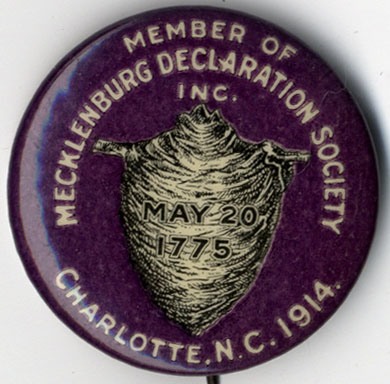A few remembrances of Reynolds Price have noted his deep, resonant voice. Those tributes struck a chord with me because my introduction to Reynolds Price came not through his published works, but, rather, through his voice. His essays on National Public Radio always caught my attention. In my bookish family, his name was a familiar one so I took note when the host announced an upcoming essay from Price. Then Price’s rich voice came booming out of the ether. Not surprisingly, his essays were well-crafted. But I was just as impressed by the stylings of his voice.
Digging through our Reynolds Price ephemera here at the North Carolina Collection, I came across an interview writer Daphne Athas, herself a master storyteller, conducted with Price in 1987 for WUNC radio’s monthly program guide Listen. Here’s an excerpt (the first quote is from Athas).
“You know you have a wonderful voice? Did you ever study music?”
“I was a famous local boy soprano in Asheboro and Warrenton. I was always singing solos in church and getting dollar bills thrust at me by local moneybags gents. When I was a senior in high school I had a lot of throat problems, constantly getting what I thought were throat infections. So I finally came to McPherson’s Hospital, in Durham, and Dr. Ferguson there said,’You don’t have throat infections at all. You’re speaking incorrectly like most Americans. You’re speaking with your throat muscles and not from your diaphragm.’ And he said,’Can you take singing lessons this summer?’ I said,’Oh sure,’ and so every morning of that summer of 1951 I drove over to Durham and took lessons with a very fine teacher called George Moore and gradually my voice deepened and I wound up with whatever voice I presently have….It’s sad that in America most people have been taught to ignore the voice as a means of narration and that most people do everything they can to be inaudible, to the point of stuffing their fist in their mouths. Some of our greatest poets like Robert Penn Warren–I’ve seen auditoriums empty themselves within ten minutes after Mr. Warren began his invariably inaudible reading. I was far more influenced by music than by writers. Everyone thinks that everyone born in the South is created by Faulkner. I never even liked Faulkner very much and still don’t. I’m far more influenced by baroque poetry, especially Milton. Baroque poetry and baroque music.”
One of the last times that I heard Reynolds Price’s voice was in 2002 at his induction into the North Carolina Literary Hall of Fame. It was just as rich and booming as when I’d first heard it some 30 years before. And by then I’d also come to appreciate his literary voice.

